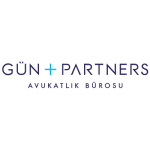Taking the right steps at the right time, with the most appropriate strategy, is important for patent owners of pharmaceutical products wishing to benefit from the related rights granted to them by laws and international conventions. Indeed, the Turkish Industrial Property Code regulates the exemption of patent rights concerning experimental acts with regard to the product subject to the invention, as well as marketing authorisation, and the necessary testing and experiments within its scope.
In practice, the courts occasionally erroneously interpret the wording of the law concerning this exemption (known as the Bolar exemption), which leads to permitting applications being made to the Social Security Institution (SSI) and even inclusion in the SSI reimbursement list. In such cases, the introduction of the generic pharmaceutical product to the market results in a decrease of 40% of the price of the original product and it is not always possible to reverse this decrease in price. Even if the price is reversed, this time-consuming process results in significant financial loss for the patent holder.
Therefore, especially in cases of pharmaceutical patent disputes, applications for preliminary injunction and for fair injunctions to be granted are of great importance for the protection of the rights of patent holders.
Issuance of a preliminary injunction creates a valuable precedent
In 2023, the Civil Court for Intellectual and Industrial Property Rights rendered a striking decision. It was determined that patent infringement was present in accordance with plausible proof, and to prevent the patent owner from suffering damages due to a price decrease, the price decrease that would have been applied pursuant to the relevant regulation was prevented by issuing a partial preliminary injunction until the situation related to the alleged infringement was clarified, before obtaining the expert report.
This judicial process is considered an extremely valuable precedent, especially in cases where highly complex legal, technical, and procedural disputes exist simultaneously and several pieces of legislation come into play.
Within the scope of the patent infringement proceedings before the Ankara Court for Intellectual and Industrial Property Rights (the Court), the patent owner filed a request for discovery of evidence and preliminary injunction against the subject product, which had completed all administrative processes necessary for its entry on to the market and which the patent owner argued had infringed their formulation patents.
One of the formulation patents that provided the basis of the request for discovery of evidence and preliminary injunction was a patent that had been approved by the EPO but had yet to be validated by the Turkish Trademark and Patent Office. The patent owner informed the Gx pharmaceutical company of the invention and its scope as a result of a letter of notice sent via a public notary in accordance with articles 7 and 8 of the Regulation on Implementing the Convention on the Grant of European Patents in Turkey and Article 97(4, 5) of the Turkish Industrial Property Code, and requested the cessation of the infringing acts. Although the company examined and interpreted the invention and its scope, it did not cease its acts of infringement.
Court responds to infringing products being placed on the market
The Court evaluated the request for discovery of evidence and preliminary injunction, and deemed the request for discovery of evidence appropriate in the first stage and decided upon an expert examination of the file. While the parties were waiting for the expert examination and expert report to be prepared, the infringing products were placed on the market.
With the introduction of the Gx product to the market, pursuant to the Decision on Pricing of Medicinal Products for Human Use, the price of the reference product would have decreased by 40%. Taking this into consideration, the patent owner immediately purchased the infringing product with invoices and submitted this as evidence to the Court, proving that the infringing product was placed on the market.
Subsequently, in light of the available evidence, a request was submitted for a preliminary injunction to prevent the price decrease of the patented product from being accepted in the first instance by conducting an examination of the file until the expert report became available, and that other requests for injunctions to prevent the commercialisation of the infringing product be evaluated after the expert report was prepared.
The Court, taking into account the infringement of one of the patents (the basis of the request for injunction) could be confirmed by simply examining the file and the evidence of the presence of the infringing product being on the market, decided that the plausible proof condition was met and issued an interim injunction to prevent the legal decrease of 40% in the price of the patented product as a result of the request of the patent owner, in return for the payment of a guarantee bond.
With this preliminary injunction, while the patent owner is prevented from incurring irreversible damages due to the decrease in the price through the infringing product’s entry into the market, the infringing product is allowed to remain in the market until the infringement is established by an expert report. In this framework, a decision was made in accordance with the principle of justice and balance of convenience.
Following implementation of the preliminary injunction granted by the Court, the patent owner filed a case on merits in accordance with Article 397 of the Code of Civil Procedure, which regulates the procedures pursuant to the completion of the preliminary injunction. However, since the Code of Civil Procedure does not regulate partial preliminary injunctions, there is no clear guidance in the law for the case at hand, where the injunction issued by the court covers only one of the requests for preliminary injunction within the scope of the request and where the expert report is awaited for the decision to be rendered for the other requests for injunction.
In accordance with the legislation, however, the case file on which a preliminary injunction is granted should be considered as an annex to the case filed on merits. The Court applied this provision in line with this concrete case and considered the case file in which the preliminary injunction was granted as an annex to the case file on merits, and the expert examination process concerning the other requests for injunction of the patent owner continued to be heard within the scope of the case file on merits.
An important decision concerning the prevention of damages
This partial preliminary injunction decision constitutes an important precedent in that an injunction can be granted in the fairest way possible to prevent the suffering of damages that may occur for both parties, especially in cases where the infringing product is put on the market without waiting for the expert report to be issued on the patent infringement.














